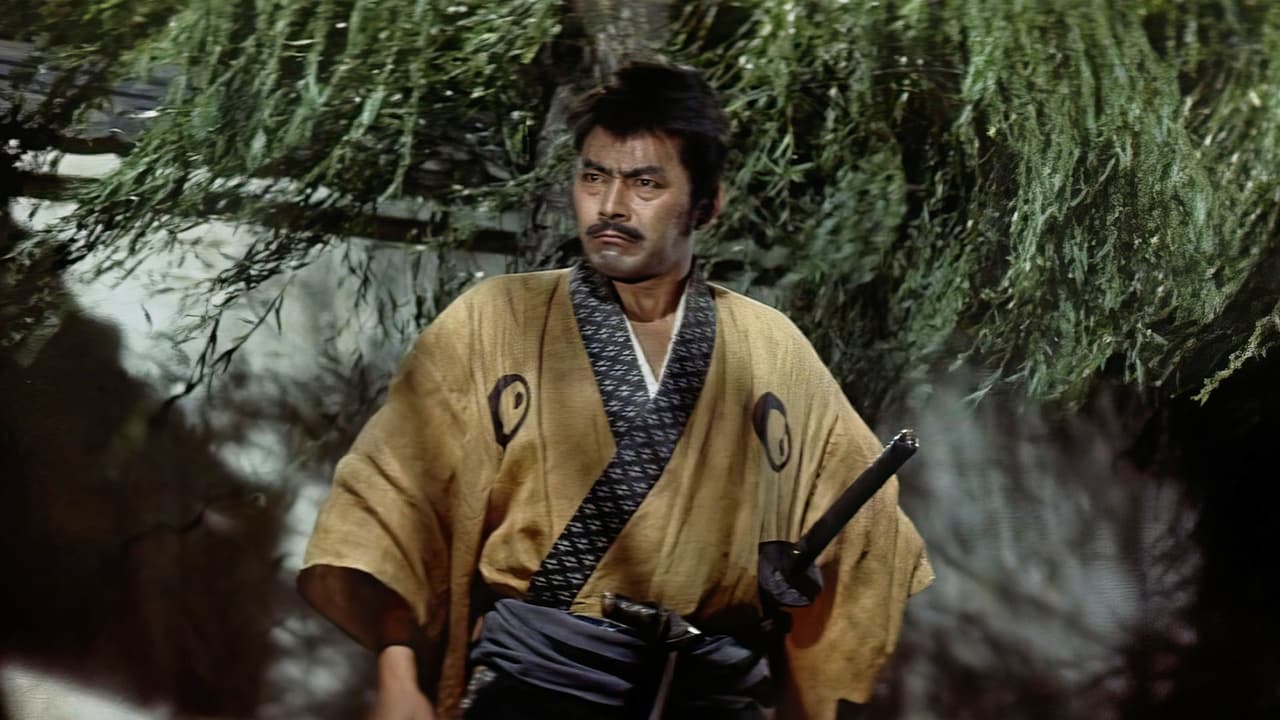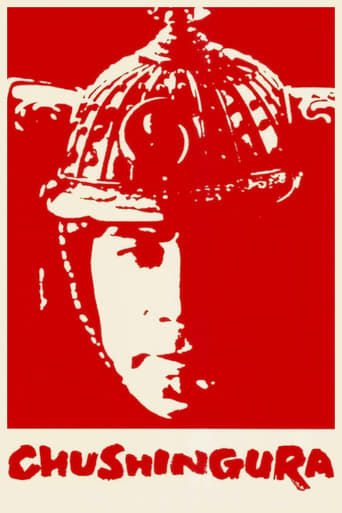

"Chushingura" retells the famous story of Lord Asano's loyal men in a way uncommon to most historical dramas. Not only does it give the account in wonderful detail, incorporating a great many historical characters (though, as has been said, they can be hard to keep track of), but it is also a wonderfully beautiful and emotional film.The cinematography is fantastic. Colors are put to good use and set up a wonderful atmosphere; it is a shame that the only DVD release of this film available in the United States is of such poor quality that much of the effect is lost. Akira Ifukube's score is, as usual, magnificent and adds as much mood and atmosphere to the film as the beautiful photography. Many of Toho's great actors are present here and do a commendable job of portraying the vast array of characters. The classic story is told with great emotion as well as attention to detail, and the pacing never slips. There are also many interesting transitions from scene to scene, set up in such a way that a scene often appears at first to be part of the one before it.A terrific movie. Recommended for all who are interested in this most memorable part of Japanese history and/or dazzling cinematic beauty.
... View MoreI have actually seen this film several times because it was my college boyfriend's favorite movie and I was dragged to the local art house to see it 5 times. But I have to say I found something new in it each time. While I agree with the previous reviewer that it can be confusing, the story is legendary in Japan and the film makers didn't feel the need to explain elements the Japanese audience would be familiar with. I suggest a second viewing will make it more coherent. I have yet to see a more recent samurai/martial arts film match the suspense and beauty of the snow scene or the heartbreak at the end of the first half. It is a visually rich and rewarding movie experience.
... View MoreThis is one of my favorite stories and this film does it great justice. It is a "must". Check it out! The acting is very good, as is the "staging" of action. The gamut of emotions is wide. The story develops is a slow, inevitable, and suspenseful way --- even if one actually knows the ending beforehand. The motivations of the characters are clear. Their internal conflicts between duty, pride and sorrow, on the one hand, and the desire for a normal life, on the other, are strongly portrayed --- as are their nostalgia and sense of loss. The interesting quality of this story is that there is no one protagonist: All of the characters must take part. It is easy to see how the story has remained so popular for about 300 years. To my mind, however, this film is not quite as visually "beautiful" as the black and white "47 Ronin" that was made in 1940, I believe. Check it out!
... View MoreThe Japanese Classic epic. (I've heard it referred to as the Japanese "Gone with the Wind" in terms of impact.) Not for all tastes, but easily one of the greatest movies of all time. Played the American art houses briefly when it came out, in the early 60's, and 35 years later I bought a DVD player just so I could see this movie again. It held up well to my memory of originally coming out of it totally stunned, and is actually better than my memory of it. At the time I was impressed with the historical spectacle and fight scenes , but they are minor compared to the character development and total visuals. The director, Hiroshi Inagaki has had few releases in the US, but if you like Kurosawa, rent or buy this DVD. The transfer is excellent, the color amazing for the period. Long and slow by today's formulas, but if you give it the full 207 minutes, you will find yourself coming back multiple times.A 1962 "Crouching Tiger..."
... View More